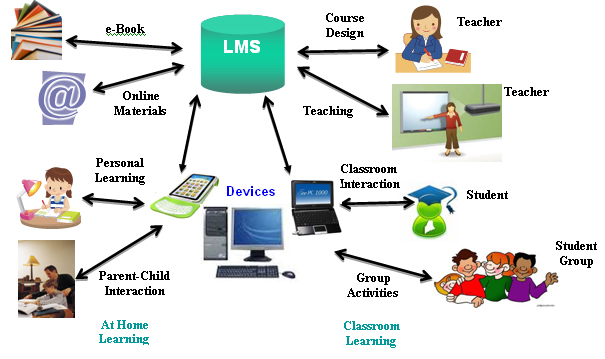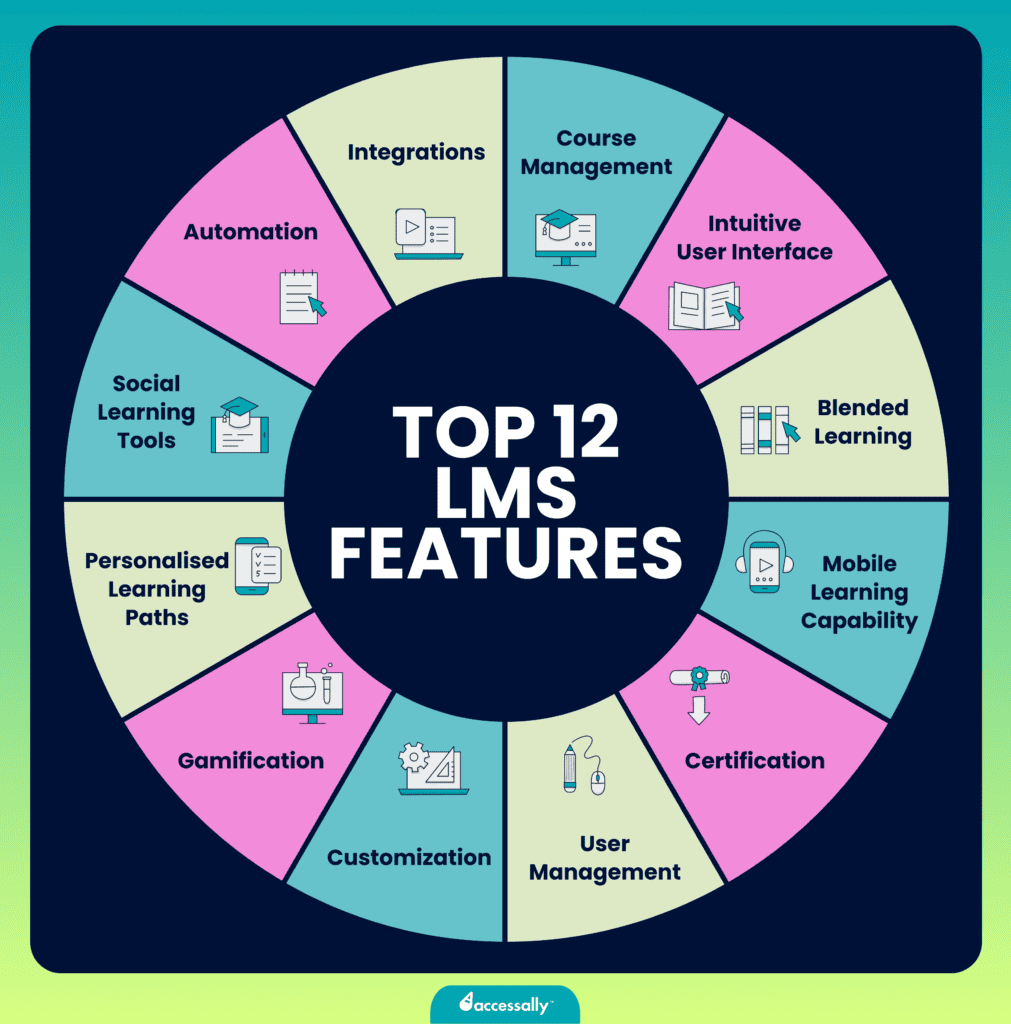LMS Singapore: A Step-by-Step Overview to Selecting the Perfect Learning Management System
LMS Singapore: A Step-by-Step Overview to Selecting the Perfect Learning Management System
Blog Article
Picking the Ideal Understanding Monitoring System for Your Company
Choosing the ideal Knowing Management System (LMS) for your company is a complex decision that requires careful factor to consider of different aspects. From defining specific discovering goals that resonate with your critical vision to examining individual experience, each factor plays a pivotal duty in the general effectiveness of the system. In addition, comprehending integration capacities and making certain scalability for future requirements can not be overlooked. As companies pursue performance and growth, the selection of an LMS becomes significantly considerable. What are the vital factors to consider that can influence your decision-making procedure?
Define Your Discovering Objectives
Defining clear understanding objectives is crucial for the successful application of a Learning Administration System (LMS) These purposes work as a roadmap, leading the development of material, analyses, and overall training methods within the LMS. By developing particular, measurable, possible, pertinent, and time-bound (CLEVER) goals, organizations can make sure that the understanding experiences are aligned with their tactical goals and student demands.
Effective knowing goals need to envelop what learners are expected to know or have the ability to do upon completion of a program or training program. This quality not just help in web content production yet also helps with the assessment of student progression and the total performance of the LMS. LMS SG. Furthermore, distinct purposes make it possible for stakeholders to analyze whether the picked LMS performances and functions line up with their academic goals.
Assess User Experience
Once finding out goals have been established, evaluating customer experience comes to be a crucial next action in picking a proper Discovering Management System (LMS) User experience incorporates the general complete satisfaction and ease with which students engage with the system. A properly designed LMS must promote instinctive navigating, making sure that users can situate programs, materials, and assistance effortlessly.
To analyze individual experience, consider carrying out usability screening with a representative example of end-users. This can offer beneficial insights right into how students engage with the system. Key aspects to evaluate include the LMS's interface layout, availability features, mobile compatibility, and the clearness of instructions supplied. Customer feedback is critical; collecting studies or conducting interviews can disclose usual pain points and locations for renovation.
Additionally, examine the availability of support sources, such as tutorials and aid facilities, which can enhance the user experience. The responsiveness of client assistance is additionally crucial; timely help can dramatically mitigate irritations that customers might encounter. Ultimately, selecting an LMS that prioritizes user experience not only enriches the learning process but also fosters higher engagement and satisfaction among students.

Evaluate Combination Capacities
Identifying the importance of smooth functionality, evaluating integration capabilities is essential when choosing a Discovering Administration System (LMS) An efficient LMS must assist in interoperability with existing systems, such as Personnel Administration Solution (HRMS), Client Connection Administration (CRM) systems, and other academic devices. This combination enhances data circulation, lowers management problems, and makes certain a natural discovering atmosphere.
When evaluating an LMS, consider the sorts of assimilations supplied. Try To Find Application Programs Interfaces (APIs), Solitary Sign-On (SSO) abilities, and pre-built connectors that simplify assimilation processes. Additionally, validate the LMS's capability to integrate with third-party devices, such as content libraries or analysis platforms, which can significantly enrich the understanding experience.

Consider Scalability and Adaptability
As companies develop, the ability of a Learning Management System (LMS) to range and adapt comes to be significantly essential. A scalable LMS can suit development in user numbers, program offerings, and content without endangering performance or customer experience. As companies increase, whether with increased employees, new areas, or diversified training demands, the LMS must seamlessly expand along with these adjustments.
Adaptability is similarly crucial; an efficient LMS should sustain different discovering techniques, such as online, mixed, and mobile learning. This versatility enables organizations to respond rapidly to emerging patterns in training and growth, making sure that they can provide engaging and appropriate understanding experiences - Canvas Singapore. In addition, the system must provide personalized functions, enabling organizations to customize the LMS to their specific requirements and branding
Additionally, an adaptable LMS should integrate easily with existing platforms and devices, assisting in a natural understanding ecosystem. Thus, when choosing an LMS, it is vital to analyze not just its existing capacities yet also its potential to adapt and grow abreast with the organization's tactical goals and developing discovering requirements. This foresight can considerably enhance the long-term viability of the chosen LMS.
Testimonial Prices and Budgeting
When examining an Understanding Monitoring System (LMS), examining expenses and budgeting is vital to make sure that the investment aligns with the company's critical goals and financial capabilities. Organizations needs to begin by identifying the complete expense of ownership, that includes licensing charges, implementation prices, maintenance, and any kind of added costs such as training and technical assistance.
It is crucial to compare numerous LMS choices, as pricing versions can vary dramatically among suppliers. Some systems might offer a subscription-based design, while others might charge an one-time charge. Organizations should likewise take into consideration the scalability of the LMS; as they expand, the cost framework might transform, impacting long-lasting budgeting.

Final Thought
Choosing a proper Discovering Administration System (LMS) is necessary for attaining business discovering goals. Ultimately, the best LMS serves as a crucial device in promoting an efficient knowing environment and driving organizational success (Canvas Singapore).
Choosing the optimal Learning Monitoring System (LMS) try this for your company is a diverse decision that calls for mindful consideration of different elements.Specifying clear discovering purposes is necessary for the successful implementation of a Learning Monitoring System (LMS)Once finding out goals have been developed, reviewing individual experience becomes an essential following step in selecting an ideal Knowing Management System (LMS)As companies develop, the ability of an Understanding Administration System (LMS) to range and adapt comes to be progressively important.Choosing an appropriate Discovering Management System (LMS) is crucial for accomplishing business knowing purposes.
Report this page